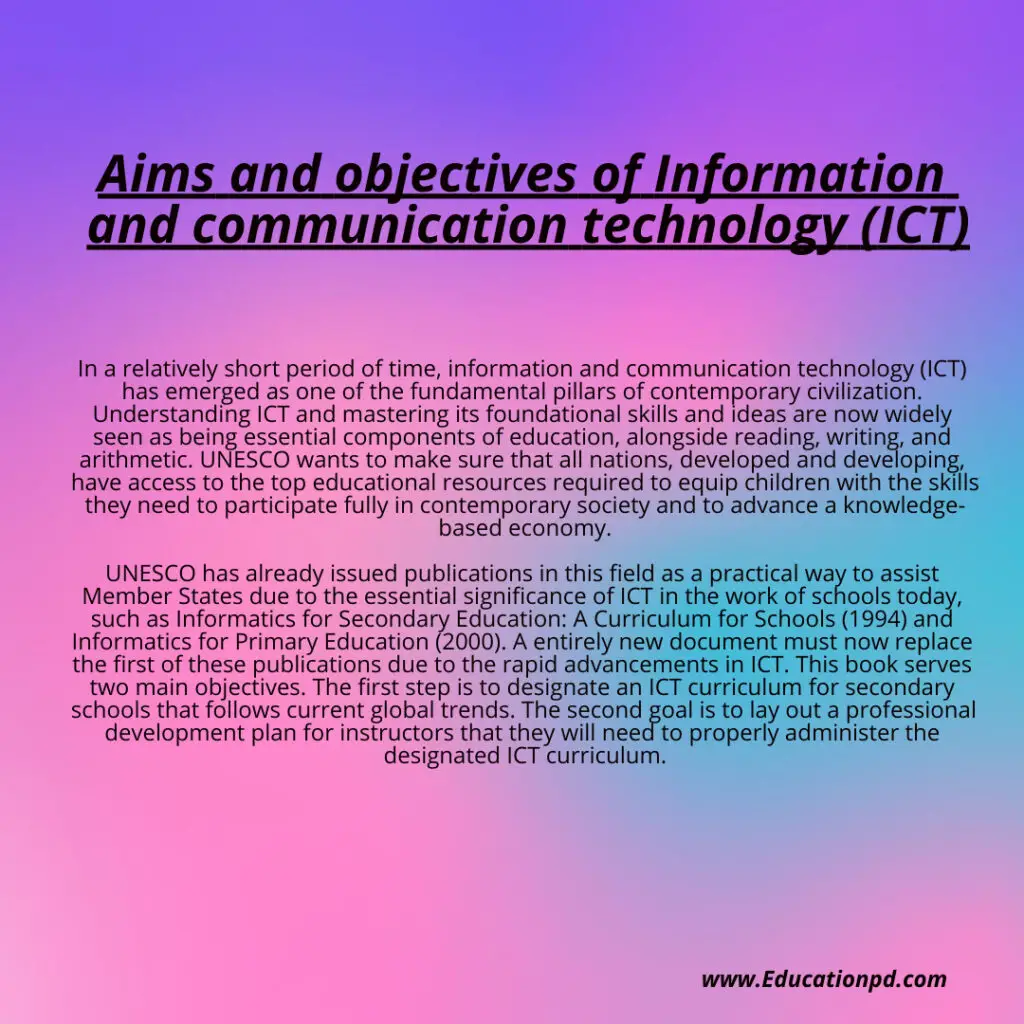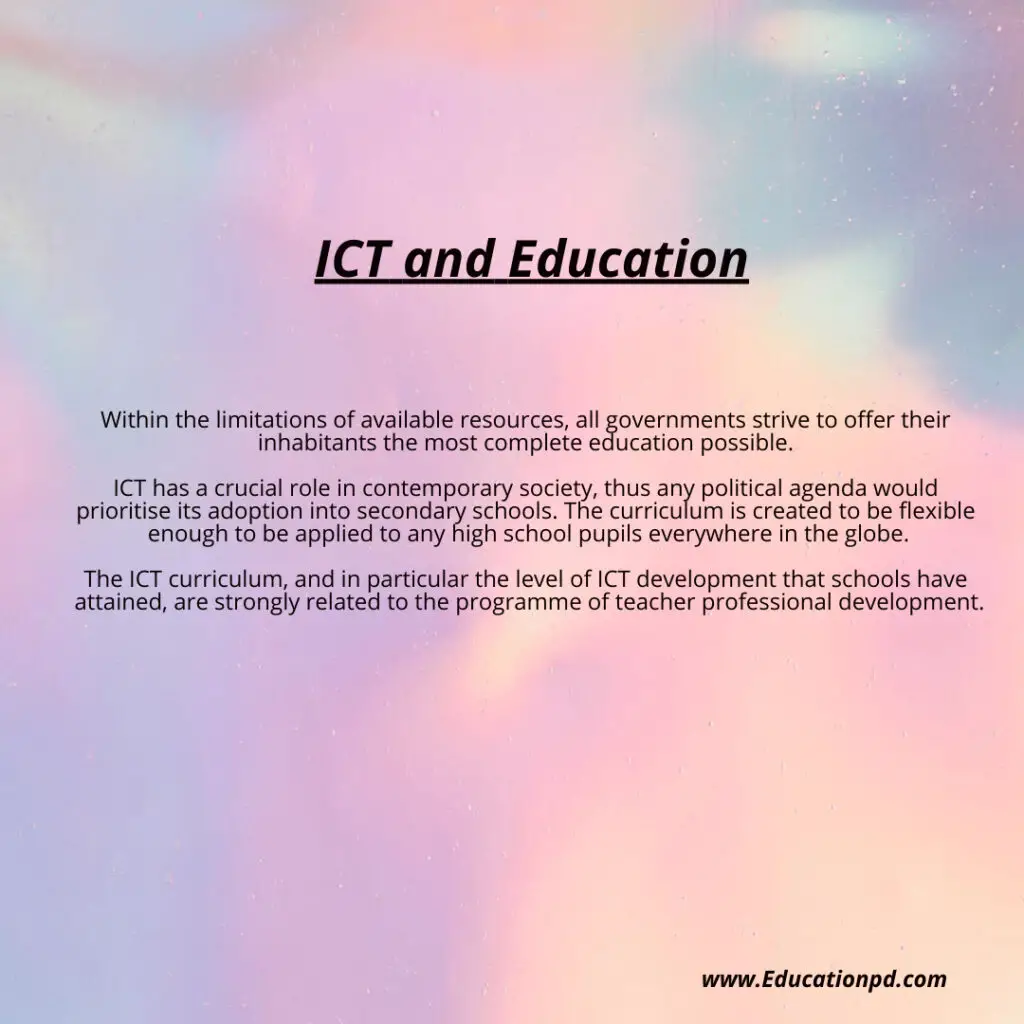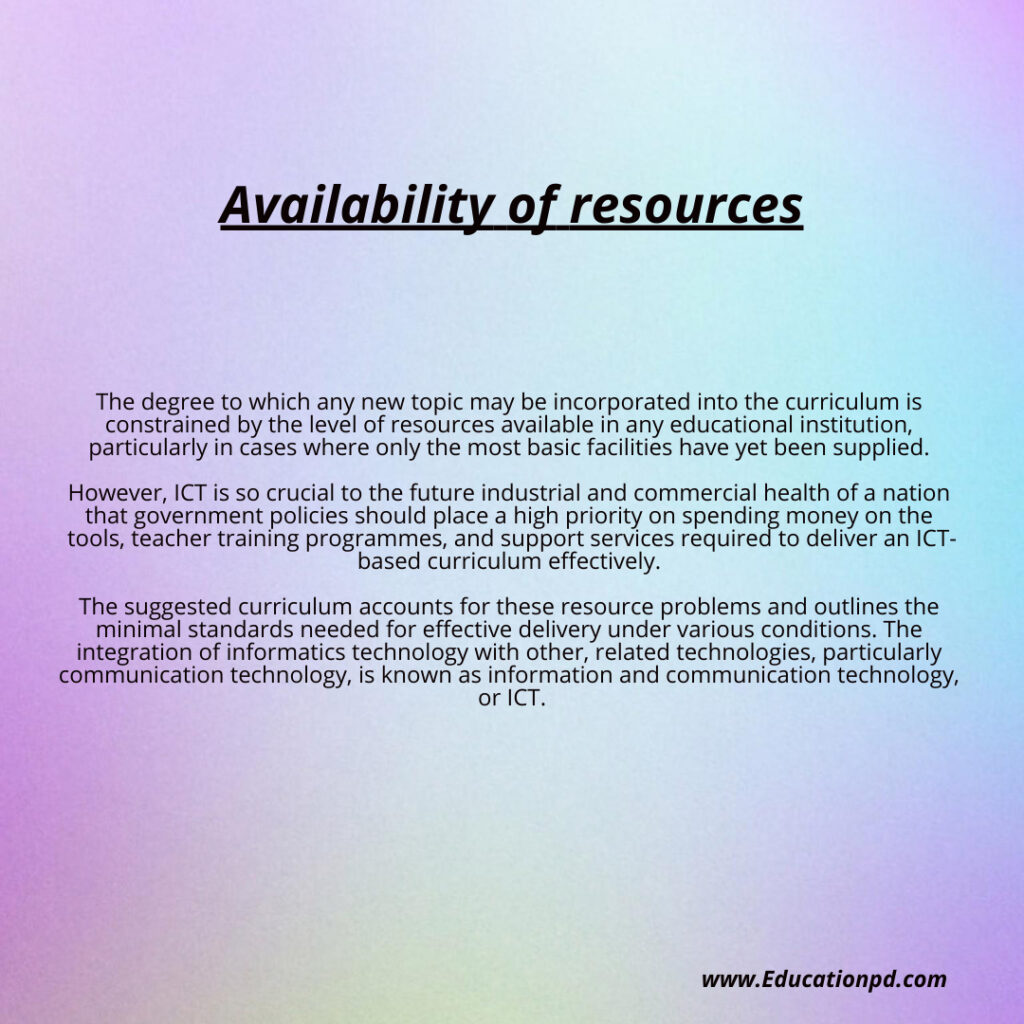Back to: Educational Technology in Education B.ed Notes, M.A Notes, IGNOU Notes
Aims and objectives of Information and communication technology (ICT)
In a relatively short period of time, information and communication technology (ICT) has emerged as one of the fundamental pillars of contemporary civilization. Understanding ICT and mastering its foundational skills and ideas are now widely seen as being essential components of education, alongside reading, writing, and arithmetic. UNESCO wants to make sure that all nations, developed and developing, have access to the top educational resources required to equip children with the skills they need to participate fully in contemporary society and to advance a knowledge-based economy.
UNESCO has already issued publications in this field as a practical way to assist Member States due to the essential significance of ICT in the work of schools today, such as Informatics for Secondary Education: A Curriculum for Schools (1994) and Informatics for Primary Education (2000). A entirely new document must now replace the first of these publications due to the rapid advancements in ICT. This book serves two main objectives. The first step is to designate an ICT curriculum for secondary schools that follows current global trends. The second goal is to lay out a professional development plan for instructors that they will need to properly administer the designated ICT curriculum.

ICT and Education
Within the limitations of available resources, all governments strive to offer their inhabitants the most complete education possible.
ICT has a crucial role in contemporary society, thus any political agenda would prioritise its adoption into secondary schools. The curriculum is created to be flexible enough to be applied to any high school pupils everywhere in the globe. The ICT curriculum, and in particular the level of ICT development that schools have attained, are strongly related to the programme of teacher professional development.

Curriculum and Teacher Development
A cutting-edge curriculum and effective teacher preparation are necessary to keep up with technological advancement and the changing capabilities expected of students and instructors.

Professional development for teachers
For a cutting-edge ICT curriculum to be successfully implemented, teachers must get proper training. Any new curriculum must be carefully planned, managed, resourced, and supported going forward. Even more considerations must be made in the case of an ICT curriculum. Studies on educational research have shown that professional development programmes for teachers work best when they are tailored to the ICT development level that schools have reached. According to the research’s conclusions, it is better to think of teacher development as a continuous process that includes several professional development activities that are carried out in schools.

Availability of resources
The degree to which any new topic may be incorporated into the curriculum is constrained by the level of resources available in any educational institution, particularly in cases where only the most basic facilities have yet been supplied. However, ICT is so crucial to the future industrial and commercial health of a nation that government policies should place a high priority on spending money on the tools, teacher training programmes, and support services required to deliver an ICT-based curriculum effectively. The suggested curriculum accounts for these resource problems and outlines the minimal standards needed for effective delivery under various conditions. The integration of informatics technology with other, related technologies, particularly communication technology, is known as information and communication technology, or ICT.
